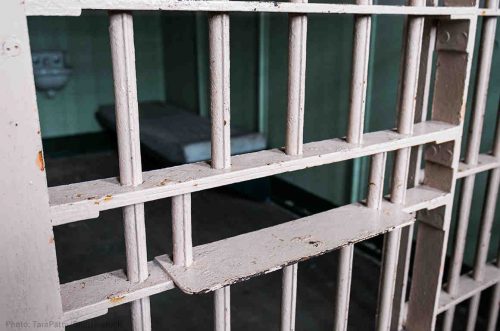

By Maeve Haggerty
SACRAMENTO, CA – In a panel titled “Moving Past Politics and ‘Perfect’ Victims: How California Fails Survivors,” experts and survivors discussed what it means to be a survivor of trafficking, the kinds of violence that survivors endure, and paths to aid survivors in rebuilding their lives.
The panel noted California legislation, AB 2354 “would ensure that survivors can petition the court to vacate a sentence resulting from their abuse and victimization” as noted by Associate Director of Survivor Advocacy at the Coalition to Abolish Slavery and Trafficking, Lee Chapelle.
The moderator of the panel was April Grayson, senior policy manager at Sisters Warriors Freedom Coalition, and the panelists were Josie Feemster, a consultant to the Community Against Sexual Harm (CASH); Kelly Pretzer, lead attorney at the San Francisco Public Defender’s Clean Slate Unit; Phoebe Nelson, a member of the CASH advisory board, and Sawan Vadan, executive director of CASH.
The panelists began by discussing why they believe it is important that peoples’ understanding of what it means to be a survivor is expanded, with Feemster noting, “Expanding people’s understanding of survivorship is crucial to challenge the misconceptions, break the stereotypes and foster empathy.”
Feemster added, “It allows for a more inclusive and supportive environment for survivors, acknowledging the diversity of their experiences and the complex challenges that they face beyond their initial victimization. This expanded understanding is essential for creating effective support systems and advocating for policies that address diverse needs.”
Vadan argued “we have to just think about more than the trafficking experience, but that person’s life and what led to that moment, what led to that situation, and understand that this is someone’s daughter, someone’s son, someone’s family member, someone’s loved one that is experiencing this.”
The panelists discussed some of the forms of exploitation survivors experience, and what may lead them to be convicted of crimes that leave a stain on their record and prevent them from effectively rebuilding their lives.
Vadan shared, “Women and men experience all kinds of violence while being trafficked, which can often lead to them going to prison or committing crimes because they’re being forced to do all of these things that they wouldn’t have necessarily done.”
When asked about some of the forms of exploitation survivors often experience, Pretzer spoke to stories she’s heard from clients who were convicted of crimes they were forced to commit by their trafficker.
Said Pretzer, “You hear about people who were forced to conduct hand-to-hand drug transactions with their trafficker right around the building, kind of peeking over there. So that way if the cops see, that person ends up—the victim ends up—getting arrested, and he literally walks away, waits for her to be released from jail, picks her up, and continues.”
Pretzer emphasized violence survivors face from the state when they are forced to live with a criminal record following their abuse, stating “the goal of our work in the Clean Slate Unit, especially in this area, is to make sure that survivors are not re-traumatized every time they apply for a job or a license or housing or something like that.”
Two of the panelists, Feemster and Nelson, spoke about their own experiences going through the criminal justice system as survivors.
Nelson said because she was able to be seen as a victim by the system, she had the opportunity to rebuild her life and not go to prison for crimes she had been forced to commit, explaining, “So I was able to be looked at as a victim instead of an aggressor, and I was able to get my sentence reduced and go through numerous programs and I was able to not go to prison and have a great life because of it.”
Feemster said she was not able to be seen by the system as a victim, and has had a very different experience because of it, maintaining she has been hindered by three charges on her record which she has been working to vacate.
Feemster added that “my life has been very challenging to navigate…Every time I apply for a job, every time I apply for a house to rent, I have to disclose this information to people that probably don’t even know about human trafficking.”
Despite Nelson’s positive experience with the system, she still experiences roadblocks to leading a successful life, noting, “I have a job, but I’ve been put on pause because my background check hasn’t come back and it’s taken a month.”
Nelson’s experience demonstrates the need for policy reform that AB 2354 offers because it would allow survivors to have their charges vacated and truly removed from their record.
Pretzer said “this vacatur bill means that people are able to have the confidence to go out in the world to apply for housing, to apply for employment, and know that absolutely no employer, no agency is going to be able to see what they have been through, that they’re not going to have to explain what they have been through to try to keep a job. This is the relief that will actually change people’s lives.”
The panelists agreed AB 2354 has the potential to help survivors going through the system now, and resolve the criminal justice system’s past failings when it comes to survivors.
Grayson added, “And so that’s the thing as well with 2354, survivors will be seen as survivors, even though their charges might not say that they are survivors. And I think that’s one of the biggest things to me.”